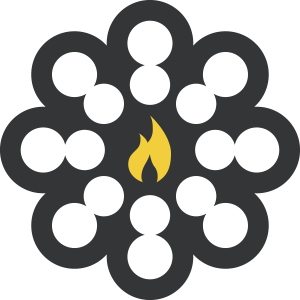Free Resources
Experience Strategy Trends for 2025
We are on a mission to make experience strategy better for everyone. We present these trends, based on our extensive research into customers and the culture, to help you, the Experience Strategist, deliver more impact for your company and your customers.
Only Companies With
a Strategic Point of View
Will Survive.
To Be Compelling Requires a Strategic Point of View explores how businesses can cultivate loyalty by embracing a perspective that resonates with their audience. This isn’t about empty slogans or fleeting trends—it’s about being prepared for the near future needs of your customers, rallying your organization around your point of view, and building experiences that work for this highly intelligent, highly customized world.
Through strategic insights, real-world examples, and actionable frameworks, this book will help you craft a compelling point of view that compels your customers and fosters lasting loyalty. If you want to create a business that captivates, influences, and strengthens customers, it all starts here.
Jobs To Be Done
Jobs to be done are the foundation of experiences.
One of the key reasons why our clients return again and again to Stone Mantel is because we don’t just report back to you what your customers say. We listen carefully and we develop models based on what they share. Sometimes those models are consumer behavior models. Sometimes they are frameworks that help you think about your business challenges differently. And sometimes they are frameworks that build upon or explain key principles of innovation and marketing in new ways.
You’ll find a few of the frameworks we’ve developed in published books. But many are proprietary and shared only with our clients.
For example, we’ve designed frameworks for:
• How economic value is produced by experiences.
• What makes consumers happy in engaging experiences.
• How to move from functional jobs to get done to emotional, social, and aspirational jobs.
• How to target the markets within a customer.
• How to create customer journey strategy that addresses the modes consumers get into.
Transformative Experiences
All too often, fitness centers, medical providers, colleges, and organizations in many other industries seek to distinguish themselves only by the quality, convenience, and experience of what they sell. It’s not that those things aren’t important. But they matter only as means to the ends that people seek.
Too many organizations lose sight of this truth. Even when they do promote what they sell in relation to consumers’ aspirations, they rarely design solutions that allow people to realize them. Instead, individuals must cobble together what they think they need to achieve their goals—for example, a trainer, a particular diet, and a support network to lose weight.
Enterprises should recognize the economic opportunity offered by a transformation business, in which consumers come to them with a desire to improve some fundamental aspect of their lives.
Even though we’re all filled with hopes, aims, and ambitions, significant change is incredibly hard to accomplish on our own. This e-learning offers an approach to designing and improving the impact of a transformation business.
Transformation Economy eLearning:
• Who is in the transformation economy
• What defines a transformation
• How to succeed in a transformation business
• How to design experiences that allow consumers to realize their aspirations
Digital Context 2.0
Seven Lessons in Business Strategy, Consumer Behavior and the Internet of Things
Dave Norton outlines the parameters of what comes after omni-channel strategy. We are in the midst of yet another shift in business models because of digital. This time the force for change is not mobility; it’s data and the Internet of Things. The more devices that connect to each other, the more digital creates a personal ecosystem, called Digital Context. Digital Context is as distinct a shift in business strategy from omni-channel as omni-channel was from the first multi-channel business models. Companies need strategies grounded in consumer behavior to guide the development of business models, brand experiences, and customer journey work. Based on years of in-depth research on consumers, Digital Context 2.0, provides seven lessons on how to prepare your business for the next wave of technologies—and make your customers happier.
Mass Customization
Mass Customization: The New Frontier in Business Competition
This trailblazing book, written by Stone Mantel partner Joe Pine, shows companies how to mass-produce and individually customize their products and services to fit their individual needs. New ways of managing, together with new technology, make possible the seeming paradox of providing each customer with the “tailor-made” benefits of the pre-industrial craft system at the low costs of modern mass production.
Data Experience Design
Data Experience Design is at the heart of smart experiences
At Stone Mantel we think not just about how to design experiences to better help people get their jobs done, but also to encourage people to share data using techniques that help them feel comfortable their data is being used to support and strengthen them.
We have been tracking consumer comfort with sharing data since 2015 and while there was a definite shift in comfort during the pandemic, consumers still remain cautious about sharing data.
We have studied data experience design in several industries including:
• Healthcare positively impacting physical health and emotional wellbeing
• Banking improving money management and financial wellbeing
• Employee engagement and increased meaningful work experiences
• Home as a hub for family and life management
• Time well saved and spent when shopping
Experience Economy
Updated Edition
In 1999, Joe Pine and Jim Gilmore introduced experiences as a new form of economic activity. Their book ushered in The Experience Economy, and is now a classic, embraced by readers and companies worldwide and read in more than a dozen languages.
You do not understand experiences until you have read this book.








